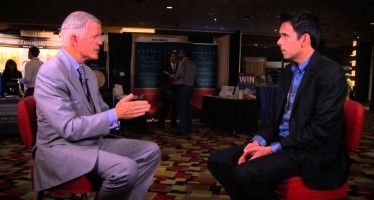Who Regulates Air Resources Agency?
FEB. 7, 2011
Despite a recent legal ruling halting implementation of California’s climate change law, the California Air Resources Board, a seemingly rogue agency with intimidating regulatory power, appears to be operating with a “business as usual” attitude. But many in the state are concerned about CARB’s lack of accountability, as well as the callous and inflexible battle already being waged on the state’s residents and businesses, by the agency.
A California superior court recently issued a tentative decision against the CARB for failing to comply with environmental law as the agency proceeds with implementation of AB 32, California’s global warming law. The injunction, which amounts to a legal forewarning, recommends that CARB needs to rewrite its California Environmental Quality Act (CEQA) documentation, and instructs the agency to cease implementation of the AB 32 Scoping Plan until the violation is corrected.
The Association of Irritated Residents filed the lawsuit against CARB, but are generally supportive of the goals of AB 32. The group wanted their concerns addressed surrounding how the implementation of the law to reduce greenhouse gasses and effects of climate change is already unfairly impacting disadvantaged communities in the state.
The “Irritated Residents” have filed many lawsuits against the Environmental Protection Agency, and they have sued central valley ethanol and hydrogen plants.
The question remaining is whether the ruling will stall the roll out of California’s carbon cap and trade program, scheduled to take full effect in January 2012. Is anyone at CARB listening?
From a legal standpoint, the judge heavily recommended that CARB halt implementation of AB 32 until the CEQA documentation is rewritten, which if done properly, should take six to 12 months to complete.
But it appears that CARB officials don’t believe that they have to stop implementation right now — not until something more permanent is ordered.
Described as only a “temporary setback,” an analysis of the judge’s decision sent out last week by UCLA said, “the tentative ruling, should it become permanent, will create some bumps in the road toward AB 32 implementation but I predict that the bumps will be only small ones.” Ann Carlson, the author of the UCLA memo also said, “The court decision is, appropriately in my view, highly deferential to the complex decisions CARB has had to make in implementing legislation that requires economy wide limitations on greenhouse gases.”
The judge’s decision states that CARB violated state environmental law in 2008 when it adopted the plan to reduce greenhouse gases, and again last year when it passed cap-and-trade regulations.
However, the ruling is not about the science of global warming, and instead addresses procedure and the implementation process of AB 32 – and apparently CARB isn’t even getting that right.
Recent news reports have found that CARB officials are considering doing nothing about the ruling. And that brings up the authority and enforcement of CARB – who is in charge of making sure the agency is doing what it is charged with doing?
Within environmental, energy policy and government circles, CARB Director Mary Nichols has a reputation for being stubborn and recalcitrant. This appears to be true given that California has found itself all alone in the global warming mitigation game.
For several years environmental and energy experts have said that the air resources agency fully expected that the federal government would jump on the bandwagon with California to lead the global warming cause when AB 32 was passed. But instead, not only did the feds not come to California’s rescue, other states have been overturning their own carbon reducing implementation procedures for “fiscal” reasons.
And instead of listening to the warning from the Legislative Analyst’s Office that California’s go-it-alone approach to global warming policy would have serious consequences on jobs, businesses and the economy, Nichols has dug her heals in even deeper, and has been unyielding with stepped up implementation.
The LAO study found:
1) California’s economy at large will likely be adversely affected in the near term by implementing climate-related policies that are not adopted elsewhere. This is in large part because such policies will tend to raise the state’s relative prices for energy, such as electricity.
2) This in turn will adversely impact the state’s economy through such avenues as causing the prices of goods and services to rise; lowering business profits; and reducing production, income and jobs.
3) These adverse effects will occur in large part through economic leakage, as certain economic activity locates or relocates outside of California where regulatory-related costs are lower.
4) Despite the potential importance of leakage, ARB’s evaluation of economic leakage within its economic analysis of the [AB 32 Scoping Plan] is deficient.
Charged with providing fiscal and policy analysis to the Legislature, the LAO recommended that CARB dial back implementation of AB 32. But the agency has only beefed-up its efforts and implemented strict diesel regulations, clean car programs, tire pressure standards, air conditioning standards and low carbon fuel standards, as well as planning for changes to forestry, agriculture, and transportation.
Explaining the implementation plan, the CARB website states “The ARB has already adopted a number of ‘early action’ measures required by the Scoping Plan, and is now working on the Plan’s other measures. The majority of this work must be completed by December 31, 2010, with most regulations and other initiatives adopted by the start of 2011. This means more than 20 additional Scoping Plan measures will be adopted by ARB in 2009 and 2010. The goal is reducing GHGs to 1990 levels by 2020. After that, California’s goal is a reduction of 80 percent from 1990 levels by 2050.”
In 2009, Sen. Bob Dutton, (R-Rancho Cucamonga) introduced SB 295 to require the CARB to re-analyze the costs associated with implementing AB 32. The bill ended up on the inactive list after failing to pass in the environmental committee.
Dutton’s bill would have delayed the development of regulations until CARB actually evaluated the economic impact of implementing AB 32, taking into consideration the many of the concerns that the LAO had.
The Senator’s website reported that respected economists in the state had grave concerns about the economic impact of AB 32. “Economic analysis (of AB 32) is terribly deficient in critical ways and should not be used by the state government or the public for the purpose of assessing the likely costs of CARB’s plans,” Harvard economist Robert Stavins reported. “It is impossible to use the analysis to determine whether CARB’s Scoping Plan represents a cost-effective means of reducing California’s contribution to greenhouse gas concentrations.”
Matthew Kahn of UCLA said, “While I support the Governor’s broad AB32 goals, I am troubled by the economic modeling analysis that I have been asked to read. AB32 is presented as a riskless ‘free lunch’ for Californians…this would be a large free lunch! I would like to believe this claim but after reading through the Economic Analysis and the five appendices there are too many uncertainties and open microeconomic questions for me to believe this.”
If the judge’s injunction is made final, the state would be ordered to stop the implementation of AB 32 until the CEQA plan is fully complied with. No one seems able to answer whether CARB will comply. If the agency does not comply, what then, and who is in charge?
The Air Resources Board and has until Feb. 8 to respond before the court issues a final ruling.
Katy Grimes
Related Articles
Video: Jerry Brown’s biggest challenge in CA
Chapman University Law School Dean Tom Campbell explains to CalWatchdog.com’s editor-in-chief Brian Calle how he believes the biggest challenge Gov.
An open letter to bullet-train board Chairman Dan Richard
Dan Richard was at it again in Saturday’s Los Angeles Times. LAT’s Ralph Vartabedian did a good job painting a downbeat
Supreme Court refuses to hook Delta smelt case
Yesterday the U.S. Supreme Court refused to put a hook into an appeal of lower-court actions that shut off water




